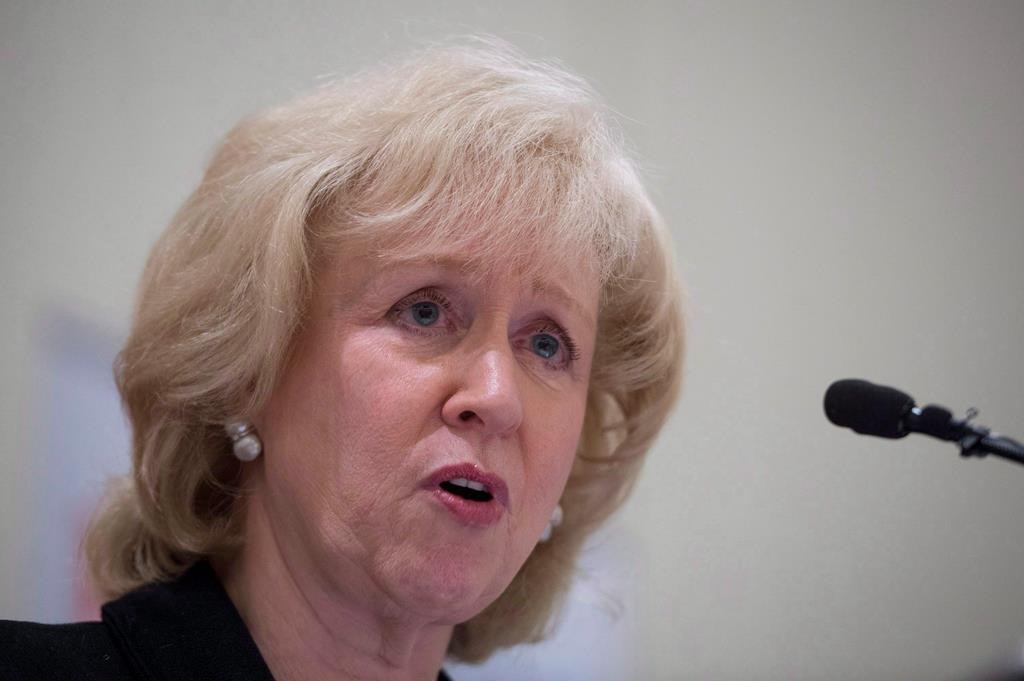Support strong Canadian climate journalism for 2025
The federal Liberals have decided a new advisory board, not the government, should select potential new judges to sit on the Supreme Court of Canada.
The government announced Tuesday it will change the manner in which a Supreme Court justice is appointed, saying it’s time for the process to "demonstrate a degree of rigour and responsibility" that may have been missing in the past.
Former prime minister Kim Campbell will chair the seven−member, non−partisan advisory board that will recommend three to five candidates for the high court to the prime minister for consideration.
The Liberals said the new appointment process will add openness and transparency to the process of selecting new Supreme Court justices.
The previous Conservative government did away with a secret, all−party committee of MPs to review nominations after controversy erupted over the appointment of Marc Nadon, which the high court killed by ruling Nadon didn’t meet the constitutional requirements for a Quebec justice.
But the Liberals’ changes Tuesday raised concerns that Atlantic Canada could miss out on the next Supreme Court appointment.
When Justice Thomas Cromwell retires Sept. 1, the Supreme Court will no longer have a judge from Atlantic Canada.
The government indicated Tuesday that applications for Cromwell’s seat will be accepted from across the country despite the custom that the spot be occupied by a judge from Atlantic Canada.
The document said Ottawa wanted to allow for "a selection process that ensures outstanding individuals are considered for appointment to the Supreme Court of Canada."
Newfoundland and Labrador Justice Minister Andrew Parsons said Tuesday he was troubled by the federal government’s approach to finding Cromwell’s successor.
"I am disappointed that the convention related to regionalism will no longer be followed," Parsons said in a statement.
"The fact that there is no longer a guarantee that there will be a justice from Atlantic Canada is concerning particularly since we live in a country that is noted for its diversity."
Parsons added that he believes Newfoundland and Labrador has "eminently qualified legal professionals" who would make excellent Supreme Court justices.
The federal Opposition Conservatives also voiced concerns over Cromwell’s replacement.
"Every single federal Member of Parliament from Atlantic Canada — and every single premier (in the region) — is a Liberal," said justice critic Rob Nicholson.
"And collectively, they have failed to guarantee their region’s representation on the top court in the country."
Interested Canadian lawyers or judges, who meet the qualifications and are "functionally bilingual," will be able to apply for a position on the Supreme Court.
The government said it plans to publicly release the questionnaire each candidate must answer and some — but not all — of the answers from the eventual nominee.
Ottawa also said it will consult Chief Justice Beverley McLachlin, provinces, territories, and opposition parties on the nominee.
The House of Commons and Senate justice committees will have the chance to question Campbell and Justice Minister Jody Wilson−Raybould about the incoming Supreme Court justice. The parliamentary committees will also get an opportunity to question the nominee through what the government calls a "moderated question and answer session."
The advisory board chaired by Campbell has seven members, four of whom were designated by the Canadian Judicial Council, the Canadian Bar Association, the Federation of Law Societies and the Council of Canadian Law Deans.
Wilson−Raybould named the other three members, two of whom are from outside the legal community.
The change is similar to one the Liberals brought in months ago to appoint senators. An independent body now makes decisions about who should be named to the upper chamber, a process that also enables Canadians to apply for the jobs themselves.
Much like the Senate, the prime minister will still decide who should join the high court.




Comments